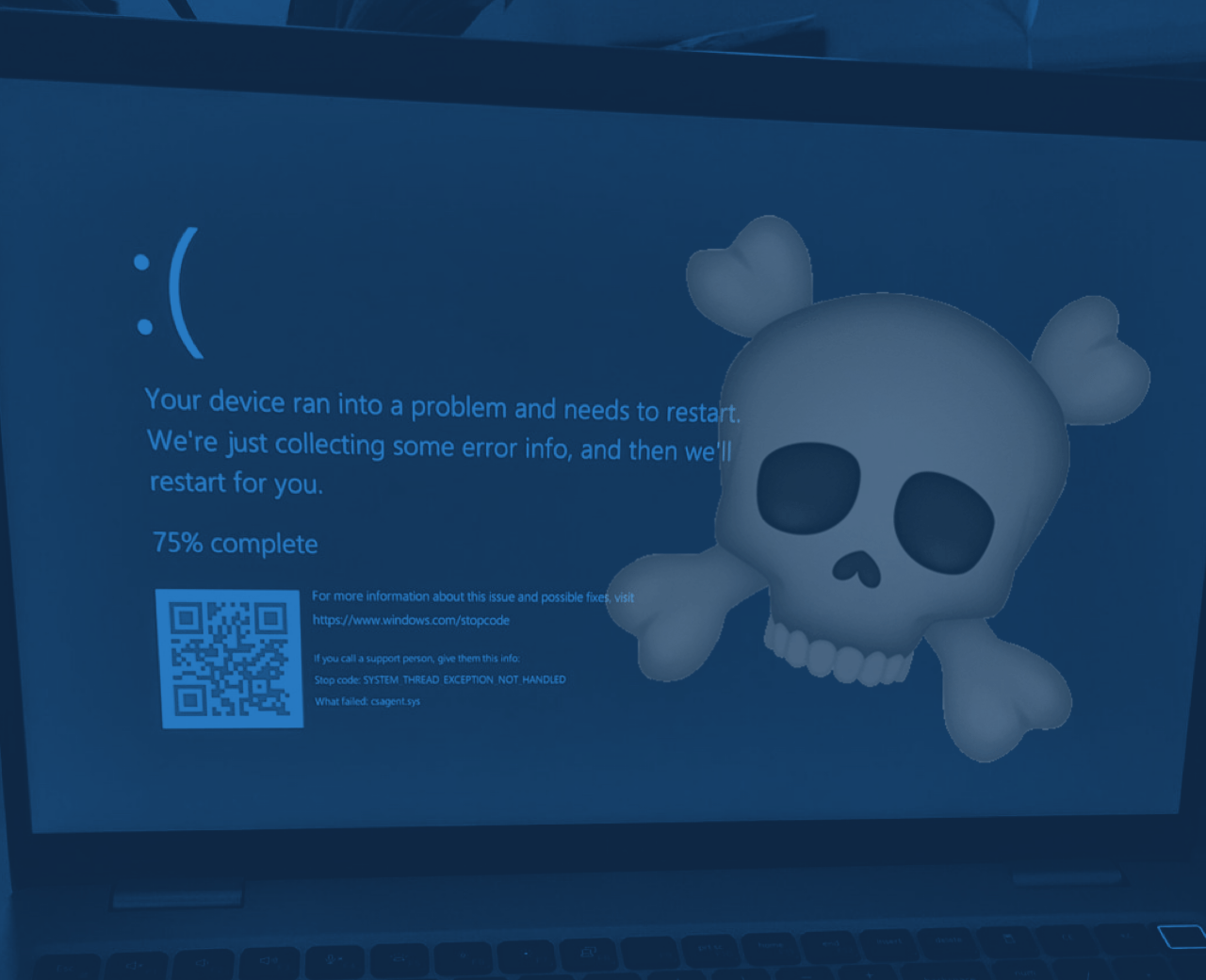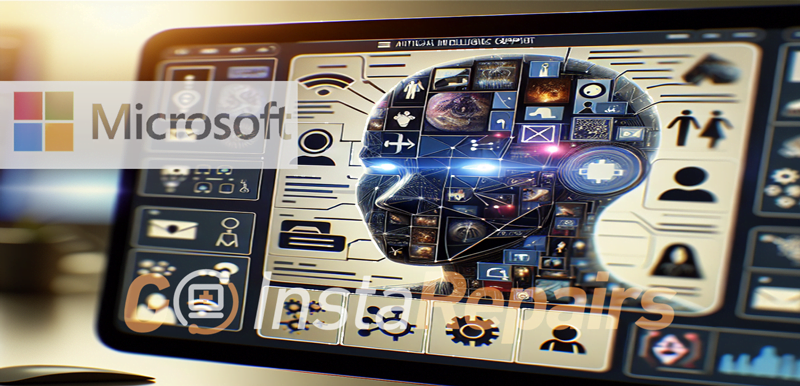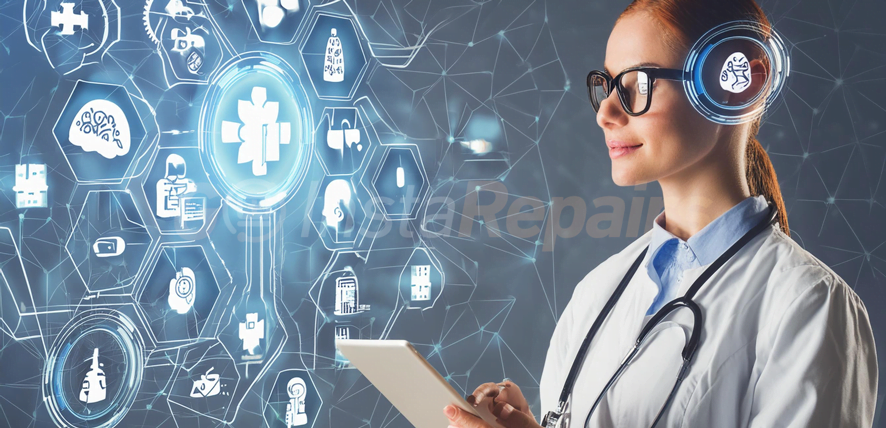AI’s Contribution to Global Healthcare Developments
The history of AI dates back to the mid-20th century when pioneers like Alan Turing and John McCarthy laid the groundwork for what would become a transformative technology. Turing’s seminal work on the concept of a “universal machine” and McCarthy’s coining of the term “artificial intelligence” in 1956 marked the beginning of AI as a formal field of study. Over the decades, AI has evolved from rule-based systems to sophisticated algorithms capable of learning and adapting from data.
AI can be categorized into three types: narrow AI, general AI, and superintelligent AI. Narrow AI, or weak AI, is designed to perform specific tasks, such as voice assistants like Siri or Alexa. General AI, also known as strong AI, aims to achieve human-like cognitive abilities across a wide range of activities. Superintelligent AI surpasses human intelligence and remains a theoretical concept, raising significant ethical and philosophical questions about the future of AI.
Understanding these foundational concepts and the evolution of AI is crucial for grasping its impact on modern society. As we delve deeper into the subject, this baseline knowledge will help contextualize the profound changes AI brings to various aspects of our lives.
AI & Technology Advances in Healthcare
The field of healthcare has seen significant progress in recent years, thanks to the integration of artificial intelligence (AI) and other advanced technologies. From diagnosing and treating illnesses to global healthcare improvements, AI has completely changed various aspects of the healthcare industry. In this article, we will explore how AI is transforming healthcare practices and its potential for future advancements.
The Role of AI in Diagnosis and Treatment
With the ability to analyze large amounts of data and learn from patterns, AI algorithms have proven to be invaluable tools for accurate medical diagnoses. By combining machine learning techniques with medical imaging, AI can help healthcare professionals:
- Detect conditions such as brain tumors
- Identify early signs of blood diseases
These advancements not only improve diagnostic accuracy but also lead to better patient outcomes.
Personalized Medicine Enabled by AI
AI also plays a crucial role in personalized medicine, where treatments are tailored based on individual patient profiles. Through algorithms that take into account patients’ genetic information, medical history, and lifestyle factors, healthcare providers can create customized treatment plans that:
- Maximize effectiveness
- Minimize side effects
This approach is particularly beneficial for patients with complex conditions who require targeted therapies.
Efficient Follow-ups with AI-powered Tools
In addition to diagnosis and treatment, AI-powered tools enable streamlined follow-ups for patients undergoing treatment. These tools monitor patient progress and analyze real-time data, helping healthcare professionals make informed decisions regarding:
- Treatment adjustments
- Interventions if necessary
This proactive approach ensures timely interventions and reduces the risk of complications.
Real-life Examples of AI in Healthcare
Real-life examples illustrate the impact of AI on different areas of diagnosis and treatment:
- Cancer detection
- Osteoporosis identification
- Surgical video analysis
- Virtual control groups in clinical trials
- Drug discovery
- Diabetic patient care
- Fall prevention in healthcare facilities
- Combating healthcare fraud
These examples demonstrate how AI technology is reshaping healthcare practices and improving patient outcomes.
What’s Next?
In the following sections of this article, we will explore the advancements made possible by AI in healthcare in more detail. We will discuss its contribution to global healthcare improvements and examine important factors such as transparency, ethics, and reliability in AI healthcare solutions. Additionally, we will look at the future of AI technology in advancing healthcare and conclude with thoughts on the immense potential of AI in revolutionizing global health outcomes. So, let’s dive into this exploration of the transformative power of AI in healthcare.
Advancements in Diagnosis and Treatment with AI
The integration of AI in healthcare has revolutionized the process of diagnosis and treatment, offering several significant advantages:
1. More accurate diagnoses
AI algorithms can analyze vast amounts of patient data to identify patterns and indicators that may not be immediately apparent to human clinicians. This can lead to earlier and more accurate diagnoses, ultimately improving patient outcomes.
2. Personalized medicine
AI facilitates the development of personalized treatment plans by analyzing a patient’s unique genetic makeup, medical history, and lifestyle factors. This tailored approach can lead to more effective treatments with fewer side effects.
3. Efficient follow-ups
AI-powered tools enable efficient monitoring and follow-up for patients undergoing treatment. For example, wearable devices equipped with AI can continuously track vital signs and alert healthcare providers to any concerning changes, allowing for timely interventions.
Real-life examples further demonstrate the impact of AI on diagnosis and treatment:
- IBM’s Watson for Oncology uses AI to analyze medical literature, patient records, and clinical trial data to provide evidence-based treatment recommendations for cancer patients.
- The use of AI algorithms to analyze medical imaging data for the early detection of conditions such as diabetic retinopathy, enabling timely intervention to prevent vision loss.
These advancements showcase the potential of AI to significantly enhance the accuracy, efficiency, and personalization of healthcare diagnosis and treatment.
AI’s Contribution to Global Healthcare Developments
The integration of AI into clinical practice has the potential to transform healthcare delivery models, reshaping treatment strategies, and improving overall quality of care. Here are some key points to consider regarding the impact of AI on global healthcare developments:
Transforming Healthcare Delivery Models
The integration of AI technologies in healthcare has the potential to revolutionize the way healthcare services are delivered. AI-powered systems can automate administrative tasks, streamline workflows, and enhance efficiency in healthcare facilities. For example, AI chatbots can provide instant responses to patient inquiries, reducing waiting times and improving access to information. Additionally, virtual assistants powered by AI can assist healthcare providers in managing patient data, scheduling appointments, and coordinating care.
Reshaping Treatment Strategies
AI algorithms can analyze vast amounts of medical data and generate insights that aid in the development of personalized treatment plans. By analyzing patient-specific data such as genetic information, medical history, and lifestyle factors, AI algorithms can help healthcare professionals make more informed decisions about treatment options. This approach, known as personalized medicine, allows for tailored interventions that have the potential to improve patient outcomes.
Improving Overall Quality of Care
AI technology can enhance the overall quality of care by providing decision support tools for healthcare professionals. For example, AI-powered diagnostic systems can analyze medical images and assist radiologists in detecting abnormalities or identifying patterns that may indicate a specific condition. This not only improves accuracy but also reduces the risk of misdiagnosis or missed diagnoses. Furthermore, AI-powered predictive analytics can help identify patients at high risk for certain diseases or adverse events, enabling proactive interventions and preventive measures.
Enhancing Patient Experiences
AI technology has the potential to enhance patient experiences by enabling patient-centered care approaches. For instance, virtual reality (VR) technology combined with AI algorithms can create immersive environments that reduce anxiety and pain during medical procedures. AI-powered wearable devices can continuously monitor patient vitals and provide real-time feedback, empowering individuals to actively participate in their own healthcare management. Moreover, AI-based telehealth solutions can expand access to care for patients in underserved regions, enabling remote consultations and monitoring.
The integration of AI into global healthcare developments has the potential to transform healthcare delivery models, reshape treatment strategies, improve overall quality of care, and enhance patient experiences. By leveraging AI technologies, healthcare providers can harness the power of data analytics and automation to optimize patient outcomes and promote patient-centered care approaches.
Ensuring Transparency, Ethics, and Reliability in AI Healthcare Solutions
Transparency and reliability are crucial factors when it comes to developing and using AI algorithms in healthcare. As AI becomes more common in medical practice, it’s important to be ethical and transparent to build trust with patients and healthcare professionals. Here are some key things to think about:
1. Maintaining transparency and ethical standards
It’s important for developers and healthcare organizations to be clear about how they create, train, and test AI algorithms. This includes:
- Explaining where the data comes from
- Describing any limitations or potential biases in the algorithms
- Prioritizing privacy protection, data security, and informed consent
These transparency and ethical standards should be followed by all stakeholders involved in the development and deployment of AI solutions in healthcare.
2. Challenges in ensuring reliability
Making sure that AI systems are reliable is an ongoing challenge. We need to constantly check for errors or biases that might come up when using the algorithms in real-life situations. It’s also important to listen to feedback from healthcare professionals and patients and make updates as needed.
A recent study highlighted some challenges in ensuring reliability of AI systems in healthcare. These challenges include addressing algorithmic biases, improving interpretability of results, and addressing issues related to data quality.
3. The role of regulations and guidelines
Rules and guidelines are important for making sure that AI is used responsibly in healthcare. They help create a structure for being transparent, protecting privacy, keeping data secure, and following ethical practices. Regulatory bodies can set standards for creating algorithms, testing them, and reporting results to make sure that patients are safe and that AI is used effectively.
The regulatory framework for AI plays a crucial role in ensuring transparency, ethics, and reliability in AI healthcare solutions. This framework provides guidelines for the development and deployment of AI systems, with a specific focus on healthcare.
By focusing on transparency, ethics, and reliability in AI healthcare solutions, we can address worries about patient trust, accuracy of diagnoses, treatment choices, and overall healthcare results. Developers, healthcare professionals, regulators, and policymakers all need to work together to create rules that encourage responsible use of AI in healthcare.
AI has a lot of potential to improve global health outcomes. By dealing with issues related to transparency and reliability while also being ethical, we can make sure that patients are safe and that they trust the AI tools used in their care.
The Future of AI Technology in Advancing Healthcare
As AI continues to evolve and revolutionize healthcare, the future holds even more exciting possibilities for its application in advancing healthcare outcomes. Here are some potential future directions for AI in healthcare:
1. Leveraging Big Data and Machine Learning:
The integration of big data analytics and machine learning algorithms can unlock valuable insights from vast amounts of patient data. By analyzing electronic health records, genetics, lifestyle factors, and environmental data, AI can facilitate predictive analytics for disease prevention and early intervention.
Machine learning algorithms can identify patterns and predict patient outcomes, enabling healthcare providers to tailor treatments and interventions.
2. On-Demand Healthcare Services through Wireless Technologies and Smartphones:
Wireless technologies and smartphones have become an integral part of our daily lives. In the future, they can play a significant role in enabling on-demand healthcare services through AI applications.
For example, AI-powered virtual assistants can provide personalized health advice, monitor vital signs remotely, remind patients to take medication, and facilitate teleconsultations with healthcare professionals.
3. Improving Access to Care through Telehealth:
Telehealth has gained traction in recent years as a means to overcome geographical barriers and improve access to care. With the integration of AI algorithms, telehealth platforms can enhance remote patient monitoring and triage.
AI-powered algorithms can analyze patient data in real-time, detect abnormalities, and prioritize high-risk cases for immediate attention by healthcare professionals.
By leveraging big data, wireless technologies, smartphones, and telehealth solutions, AI has the potential to further improve healthcare delivery models, enhance patient experiences, and promote patient-centered care approaches.
However, it is crucial to address challenges such as data privacy/security, physician acceptance/trust, integration with existing IT systems, and compliance with regulations to ensure responsible use of AI in healthcare.
The future of AI technology in advancing healthcare holds immense promise for transforming global health outcomes. As we continue to explore and responsibly adopt AI solutions, we can look forward to:
- Improved medical diagnosis accuracy
- Enhanced accessibility of healthcare services
- Long-term sustainability in the industry
For more detailed information on the future of AI technology in advancing healthcare, including specific examples and case studies, please refer to the provided web pages for further insights.
Conclusion
The advancements in AI and technology in healthcare show great promise for changing global health outcomes. AI has already made a positive impact on medical diagnosis, treatment strategies, and overall quality of care by using big data and machine learning to improve accuracy and enable earlier interventions.
Wireless technologies and smartphones also play a role in improving access to healthcare through AI applications. With these tools, patients can easily connect with healthcare resources and receive support regardless of where they are. This is especially beneficial for areas with limited access to healthcare.
Another important aspect is the potential of telehealth powered by AI algorithms for remote patient monitoring and triage. This can help bridge the gap between patients and healthcare providers, particularly in developing countries where there aren’t enough doctors. Through telemedicine, patients can get timely care without having to physically go to a clinic or hospital.
It’s clear that we need to continue exploring and responsibly adopting AI technology in healthcare. By doing so, we can make significant improvements in medical diagnosis, enhance accessibility of healthcare services, and ensure long-term sustainability in the industry. However, it’s important to address challenges related to transparency, ethics, reliability, and data privacy in order to build trust among both healthcare professionals and patients.
With the right approach and careful implementation, AI advancements can completely change how healthcare is delivered and ultimately improve global health outcomes. Let’s embrace this ever-evolving technology as a tool for positive change in the field of healthcare.

What is a Data Breach?
A data breach happens when sensitive information is accessed or disclosed without authorization….

The Microsoft Outages 2024: What is CrowdStrike?
Learn about CrowdStrike its role in the cybersecurity industry and the latest updates on the Microsoft Outages…

The Microsoft Outages: Impact on Flights, Companies, and Services Worldwide
The recent Windows outages that have disrupted various sectors globally, affecting industries such as aviation, healthcare, and corporate environments….

Top 10 VPN Services for 2024: The Ultimate Guide
The best VPN services for 2024, including ProtonVPN, NordVPN, Surfshark, and more. From top-tier security, streaming capabilities to user-friendly interfaces…

The ‘Port Shadow’ Flaw: Which VPN Providers Are Safe Now?
The port shadow vulnerability highlights the risks associated with sharing a VPN server with other users, potentially leading to privacy…

Transforming an Old Laptop into a Chromebook: A Step-by-Step Guide
Learn how to transform your old laptop into a Chromebook.Extend the lifespan of your aging laptop and enjoy a smooth…

Advantages and Disadvantages of Artificial Intelligence in Education
Adaptive learning platforms, supports by AI, are revolutionizing the educational sector. However, the growing presence of AI in education is…

Is Google Chrome’s Incognito Mode Actually Private?
Discover the true capabilities and limitations of Google Chrome’s Incognito Mode. Learn how it protects your local browsing history but…

My Computer Has Been Hacked
Secure and protect your system for both Windows and macOS platforms. Stay vigilant and proactive to safeguard your computer and…

Poseidon Mac Stealer Distributed via Google Ads: A New Threat
Poseidon Mac Stealer. Distributed through deceptive Google Ads, this sophisticated malware infiltrates systems to exfiltrate sensitive information….

Network Basics to Keep Your Computer Secure (Easy and Simple
Learn what is an IP address, the importance of DNS translating domain names (or website URLs) to IP addresses,…

Guide to Troubleshooting Paper-Jam in your Printer
From proper paper loading and using the correct paper type to regular maintenance and understanding environmental factors to keep your…

Different Types of Rootkits
Learn about the different types of rootkits, including user mode, kernel mode, and firmware rootkits, and understand their operating mechanisms…

What is a Rootkit?
Although most rootkits affect the software and the operating system, some can also infect your computer’s hardware and firmware. Rootkits…

How to Remove a User from a Shared Windows Device
Learn how to manage and remove user accounts on Windows 10 and 11 to enhance security, free up space, and…

Most Common Symptoms That Your Computer is Infected with Malware
Discover the critical symptoms of malware infections, from on-screen warnings and browser behavior changes to performance issues and suspicious activities…..

Top 5 Smart Security Cameras for Your Home Recommended by
The top 5 smart 4k security cameras for home surveillance. Reviews by, Lorex Technology and Goinsta Repairs, experts…

Microsoft’s New AI Feature will record everything! Your passwords included!
Learn more about the implications, comparative analysis with other tech giants, and consumer reactions to this controversial AI tool….

CleanMyMac X vs Malwarebytes
CleanMyMac vs Malwarebytes: Comparing Malware and Virus Removal Tools for Apple Applications…

How to Optimize Your Wi-Fi Network at Home for Wireless
Learn how to optimize your home Wi-Fi network by understanding Wi-Fi standards, bandwidth, and frequency bands….
FAQs (Frequently Asked Questions)
How can AI aid in achieving more accurate diagnoses and possibly lead to better patient outcomes?
AI can aid in achieving more accurate diagnoses by analyzing large amounts of patient data to identify patterns and trends that may not be readily apparent to human clinicians. This can lead to earlier detection of diseases and more personalized treatment plans, ultimately leading to better patient outcomes.
What is personalized medicine and how can it be facilitated by AI algorithms?
Personalized medicine involves tailoring medical treatment to the individual characteristics of each patient. AI algorithms can facilitate this by analyzing genetic, clinical, and lifestyle data to develop targeted treatment plans that are more effective and have fewer side effects for each patient.
How do AI-powered tools enable efficient follow-ups for patients undergoing treatment?
AI-powered tools can enable efficient follow-ups for patients undergoing treatment by automating the monitoring of patient progress, alerting healthcare providers to any concerning developments, and providing personalized recommendations for ongoing care. This can help improve patient compliance and overall treatment outcomes.
Can you provide real-life examples and case studies to illustrate the impact of AI on different areas of diagnosis and treatment?
Certainly! Some real-life examples include the use of AI in interpreting medical imaging scans for early detection of cancer, the development of AI algorithms for predicting patient readmission rates, and the use of natural language processing to extract valuable insights from electronic health records for personalized treatment planning.
How does the integration of AI into clinical practice have the potential to transform healthcare delivery models on a global scale?
The integration of AI into clinical practice has the potential to transform healthcare delivery models globally by enabling more efficient resource allocation, reducing diagnostic errors, and improving treatment outcomes. It also has the capacity to enhance access to specialized care in underserved regions through telehealth solutions powered by AI technology.
What role does transparency play in the development and deployment of AI algorithms in healthcare settings?
Transparency plays a crucial role in the development and deployment of AI algorithms in healthcare settings as it fosters trust among patients, healthcare providers, and regulatory bodies. It ensures that the decision-making processes of AI systems are understandable and accountable, ultimately contributing to improved patient safety and ethical standards.
What are some potential future directions for AI in healthcare?
Some potential future directions for AI in healthcare include leveraging big data and machine learning for predictive analytics and disease prevention, utilizing wireless technologies and smartphones for on-demand healthcare services through AI applications, and expanding telehealth capabilities to improve access to care in underserved regions through remote patient monitoring and triage using AI algorithms.
How can responsible adoption of AI technology in healthcare contribute to improving medical diagnosis accuracy, enhancing accessibility of healthcare services, and ensuring long-term sustainability in the industry?
The responsible adoption of AI technology in healthcare can contribute to improving medical diagnosis accuracy by reducing diagnostic errors, enhancing accessibility of healthcare services through telehealth solutions, promoting evidence-based decision-making, and ensuring long-term sustainability in the industry through cost-effective resource allocation and improved patient outcomes.


